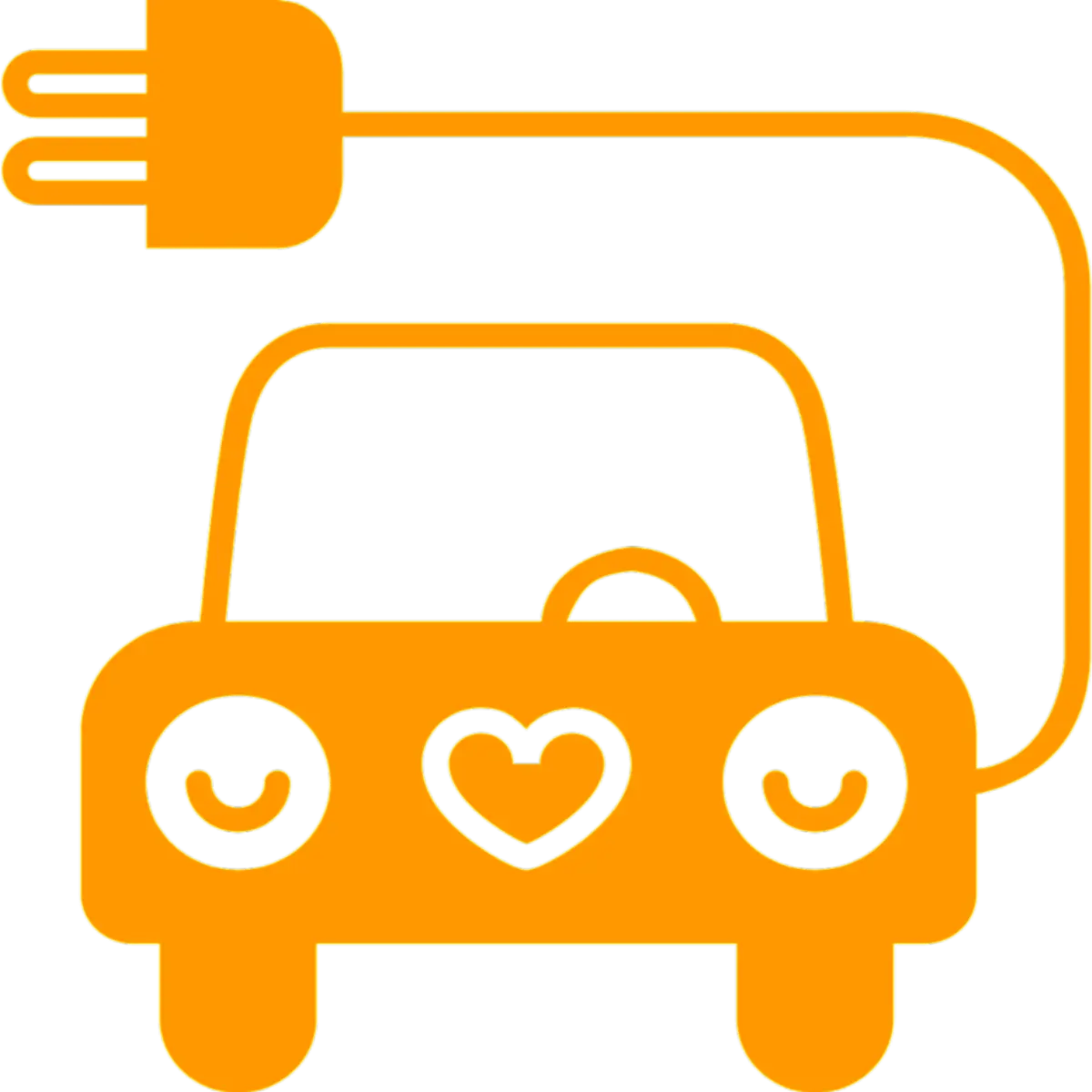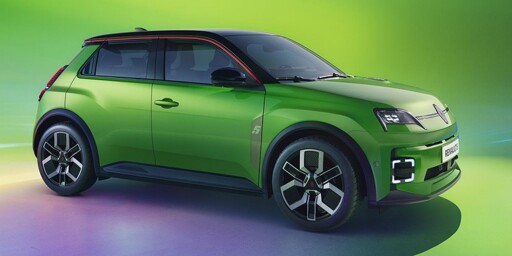The Model Y is prettier and performs better, not to mention the charging infrastructure in place is a huge bonus. For Renault to overcome all of that, bloody well done.
I drove a Renault E Tech on my holiday in France and shit man, it was better than any other car I’ve ever driven. I immediately looked into importing one to the US until I found out imports are functionally banned unless the car is 25+ years old lmao.
😂
Did you get to drive anything else?
Tesla Model Y: starting at 42 990€ Renault 5: starting at 25 000€
I don’t think there is anything else to add to the article.
People are buying the cheapest EV.
The Model Y is prettier
Fuck off 😂
Not to mention the charging infrastructure in place
Oh my fucking god, have you ever even left the US? 😂 The charging infrastructure in France is geared towards universal charging, not towards wanking off one billionaire
Tesla charging infrastructure is very good in France too. It’s good in general as well, but there are a lot of tesla-branded chargers. Quite a lot of Tesla cars as well.
I’ve never been to the USA. Have driven around the UK in electric cars though. It’s a much smoother experience in a Tesla.
Ah, didn’t realise the UK was gargling Elon’s cock too. Dunno where you got the idea that Tesla has the infrastructure in other countries though
Is it gargling Elon’s cock when prior to him opening up his network to third parties, no other charger network was touching the Tesla network for ease of access/convenience and charging speed/power? Not to mention cost.
It’s 2024
And still I’m yet to find a charger, let alone network that matches the output of the supercharger.
I have no beef in this, but I think the fastest charging car on the European continent is currently the Lotus Emeya. However, it can’t reach its maximum charge speed on Tesla Superchargers due to voltage limitations there. I did not study this in depth but perhaps worth checking it out if you want to prove your point. I would enjoy reading what either of you discover regardless of the ourcome.
To be honest, it’s not really a hill I’m willing to die on. Tesla have the largest fast charge network in Europe. It averages an output of between 150-250 KW. The next fastest network maxes out at 150 KW. Yes, there’s bound to be faster chargers available, but we’re talking about tech for the masses.
Just because I can put my personal feelings about Musk aside to acknowledge the supercharger network doesn’t mean I like or endorse him or his businesses. What I want is for his businesses to all be made obsolete. If I have a horse in the race, it’s actually probably Lime Bikes, but in terms of cars, I’m hoping BYD, Kia and Hyundai can become mainstays. As for charger networks, I would like to see them move out of the hands of manufacturers and into the hands of the nations.
The model Y is fugly
You do know that a Renault 5 can charge at a Tesla Supercharger, right?
So the charging infrastructure is exactly identical for teslas and all other EVs with a CCS Type 2 plug.
The Model Y is prettier
I dunno, Renault 5 is simply beautiful ♥️
I don’t like the boxy aesthetic
I like the look of boxy vehicles, but there’s no way a boxy design could have a lower drag coefficient than the Model Y.
The boxy aesthetic isn’t always my thing, but it still looks better than this.

I really like the look of this car.
I think the windows look unproportionally small, but besides that it’s nice.
I live in Germany and drove around Germany, France, Spain, Austria, Switzerland so far. Around 10,000 kilometers charging on public infrastructure. Only once a Tesla supercharger seemed to be in the best option for my route location-wise. The rest of the time there were better chargepoints from Ionity, EnBw or other local providers. That one time I also charged elsewhere to avoid supporting Mr Musk.
TBF superchargers are quite cheap for Tesla drivers as you save the monthly subscription fee. But other than that they aren’t too attractive IMHO.
Regarding the car itself my experience was also rather negative. I did a test drive with a model 3 highland. Within 100 kilometres I had two phantom breaking issues, luckily without serious consequences. I tested a bunch of other cars (smart #1, Volvo EX30, Renault Megane E-Tech, VW ID.4) and finally settled with a Hyundai Ioniq 6.
Tesla is pretty efficient and has a good infotainment system (although it’s a pretty locked down ecosystem). But all of the other cars felt way safer to drive to me. Hyundai is similar in terms of efficiency and thanks to Android Auto / Apple Carplay allows me to use whatever navigation or streaming apps I prefer.
It doesn’t make sense to argue about design but personally I prefer compact cars over SUVs. I really like the R5.
charging infrastructure in place
What infrastructure? Pretty sure Tesla in EU is using a standard plug, same as any other EV.
Not to mention Tesla’s quality is well known at this point.
Super chargers are still a draw.
Edit because apparently people hate honesty now.
##Superchargers vs. Average Car Chargers in Europe Power Output
- Superchargers: Typically offer high power output, ranging from 150kW to 250kW (DC).
- Average Car Chargers: Usually offer lower power output, typically between 3kW to 22kW (AC). Charging Speed
- Superchargers: Significantly faster, capable of adding significant range in a short amount of time.
- Average Car Chargers: Slower, suitable for overnight or long-duration charging.
#Location
- Superchargers: Strategically located at motorway service stations and other high-traffic areas.
- Average Car Chargers: Found in various locations, including homes, workplaces, public car parks, and some retail locations.
#Cost
- Superchargers: Generally more expensive per kWh, but faster charging can offset this.
- Average Car Chargers: Typically cheaper per kWh, but slower charging. Connector Type
- Superchargers: Proprietary Tesla connector.
- Average Car Chargers: Primarily use the Type 2 connector.
#Network
- Superchargers: Part of the Tesla Supercharger Network, exclusive to Tesla vehicles.
- Average Car Chargers: Part of various networks operated by different providers, offering broader compatibility. In summary, Superchargers are designed for long-distance travel, offering rapid charging capabilities, while average car chargers are more suitable for daily commuting and overnight charging. The choice between the two depends on specific needs and driving habits. Note: While Tesla has been expanding its Supercharger network and opening it up to other EV manufacturers in some regions, the core network remains proprietary to Tesla.
Elon is still a dickhead, but he can be a dickhead and have a certain level of success behind him.
Dude why is chat gpt or whatever llm you are using comparing the supercharger DC fast charger to AC charging solutions, it makes no sense.
The point is that since superchargers in Europe use the same CCS connectors as others, non tesla EVs can use them as well. It is not a plus point for Teslas
In what way? I’ve literally never seen a Tesla charger where I live, but there’s a ton of generic ones.
Where do you live?
Central Europe.

Makes sense
Yes, it does. Your map shows maybe a few chargers per city at most, and basically nothing in the East.
Meanwhile generics are now on almost every supermarket parking and petrol station in any bigger city.
I had some time searching for the article in between those massive pictures.
Renault 5 is definitely a cutie, though ❤







